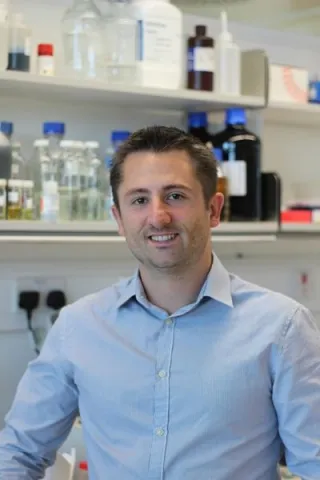About the project
In this challenging medicinal chemistry project, you will lead a high-profile drug discovery project. The aim is to identify preclinical anticancer small molecules targeting and modulating the biological activity of key disease-driving proteins. This will involve the molecular design, chemical synthesis and biophysical and biological evaluation of the synthesised small molecules.
Unregulated cell signalling results in uncontrolled cell proliferation and constitutes a hallmark of cancer. In this context, small molecule modulators of cell signalling continue to play a preponderant part in anticancer drug discovery.
The Baud lab focuses on several important signalling pathways playing key roles in cancer progression, including the p53 and Wnt signalling pathways. These pathways play a pivotal role in normal organismal development. However, misregulation of their activity is a hallmark of many aggressive and poorly treatable cancers. We develop novel classes of small molecule modulators of these pathways, as proof-of-principle lead compounds towards first-in-class therapeutics.
You will join a young and dynamic group with support from a strong network of collaborators in cell and structural biology. You will benefit from the outstanding facilities and vibrant environment provided by the School of Chemistry.
You will have the opportunity to acquire knowledge and skills in complementary areas in this multi-disciplinary project. The project is in collaboration with A*Star Singapore (Agency for Science, Technology and Research) and you will also spend time there to pursue expert training in computational drug design with our collaborators.
